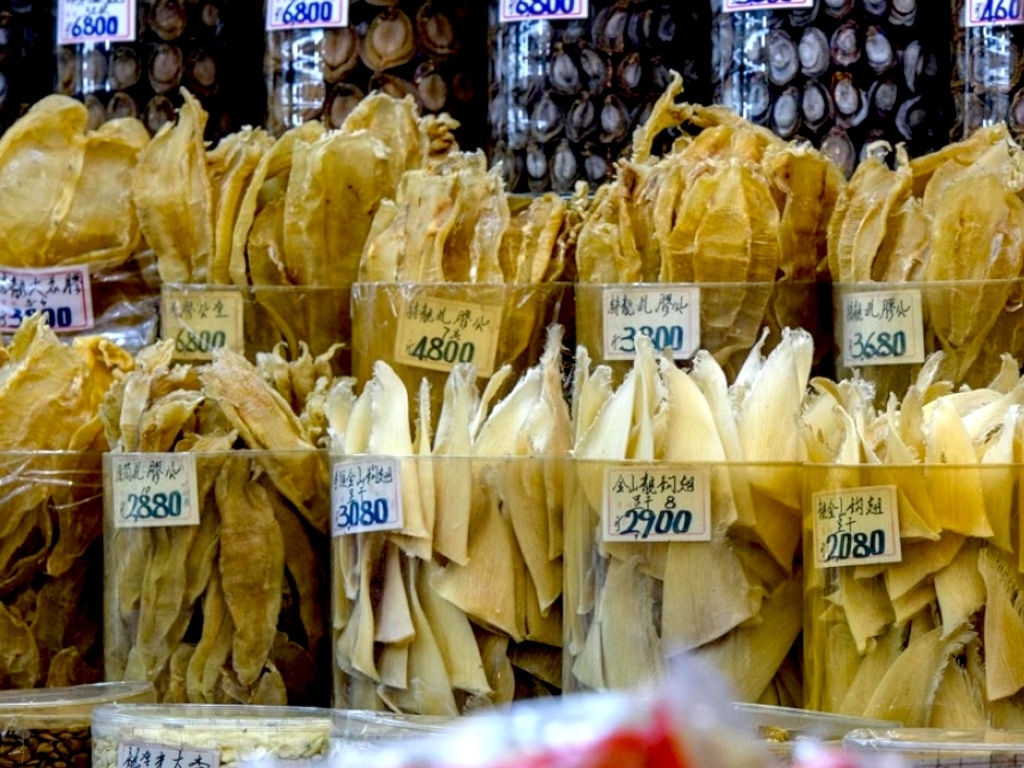3 Mins Read
A new study conducted by researchers from Hong Kong and the United States has found that shark fin sold in Hong Kong contains dangerously high levels of toxic mercury. All samples taken from shops in Sheung Wan tested positive for levels of mercury that surpassed government legal limits by as much as ten-fold. Long-term exposure to mercury has been associated with brain damage, interference with fetal cognitive development and kidney failure.
In a joint study conducted by scientists from Florida International University (FIU), University of Miami and marine conservation organisation Bloom Association in Hong Kong, researchers found shark fins sold in Hong Kong contain dangerously high levels of mercury that are health-threatening.
The study, published in the journal Marine Pollution Bulletin, revealed that all samples randomly selected from shops in Sheung Wan had levels of mercury that exceeded Hong Kong food safety guidelines by an average of 6 to 10 times. In total, the team examined 267 shark fin trimmings from the 9 most common species in the trade, testing each for mercury and methylmercury.
Read: You’ve probably eaten shark meat – here’s the shark facts you need to know
The highest mercury-containing sample came from a great hammerhead shark at 55.52 parts per million. Hong Kong’s legal limit for mercury concentration is 0.5 parts per million.

“The results were astonishing,” said Laura Garcia Barcia, a researcher at FIU marine biology and lead author of the study. “The mercury levels are super high.”
Marine scientist Demian Chapman, who is a co-author of the study, added that these levels actually constitute a crime under Hong Kong law. The Hong Kong Food Adulteration Legislation stipulates that sellers of any food product sold with metallic levels above the legal limit can face financial penalties up to HK$50,000 (US$6,450) and six months jail time.
Read: Interview with “shark lady” Andrea Richey on her uphill shark-saving battle
Research has long documented the impact of consuming mercury on human health. Prolonged exposure to mercury can lead to risk of brain and central nervous system damage, and can also interfere with fetal cognitive development. Methylmercury, an organic and highly toxic contaminant that bioaccumulates in long-lived ocean predators, can be particularly damaging to developing nervous systems and lower fertility.
The scientists hope that their findings can convince consumers that shark fin is a dangerous food choice, not just for the environment and marine life, but for human health. While awareness about the damaging shark fin industry has grown in recent years, shark fin remains in demand amongst older populations in Hong Kong and China.
Read: Why you should reconsider eating seafood altogether

Many elderly continue to insist on shark fin being served at large celebrations such as wedding banquets and Chinese New Year due to the status symbol of the traditional delicacy. However, the latest findings prove that serving shark fin is not only unsustainable and cruel, but is a direct risk to health – a concern that resonates with Asian consumers the most, who are increasingly conscious about food safety.
Targeting Hong Kong and Chinese consumption of shark fin is crucial to end the shark trade. According to the Hong Kong Shark Foundation, more than 100 million sharks are caught worldwide every year for their fins, meat and other products, with 50% of the world’s shark fin traded in Hong Kong alone.
“Not every human cares about eating an animal that’s endangered. But every human is worried about their health,” said Chapman. “That could be a very powerful driver of change in the future.”
Lead image courtesy of AFP.




